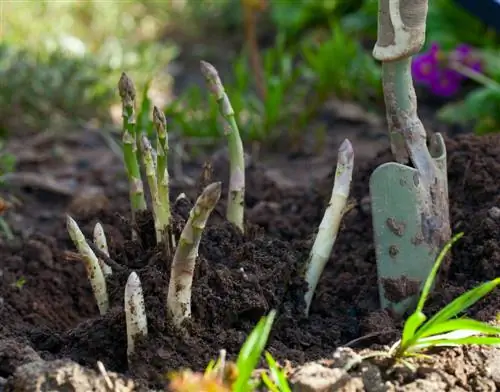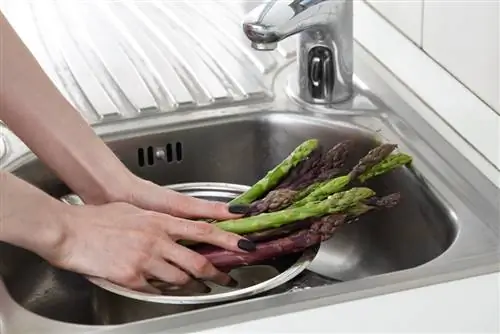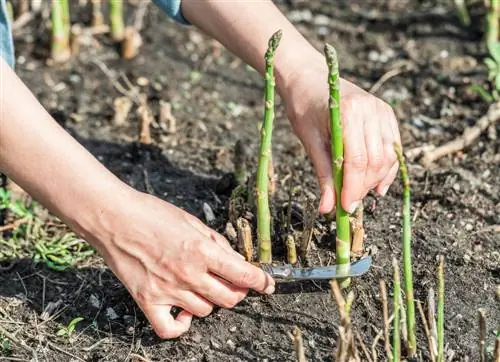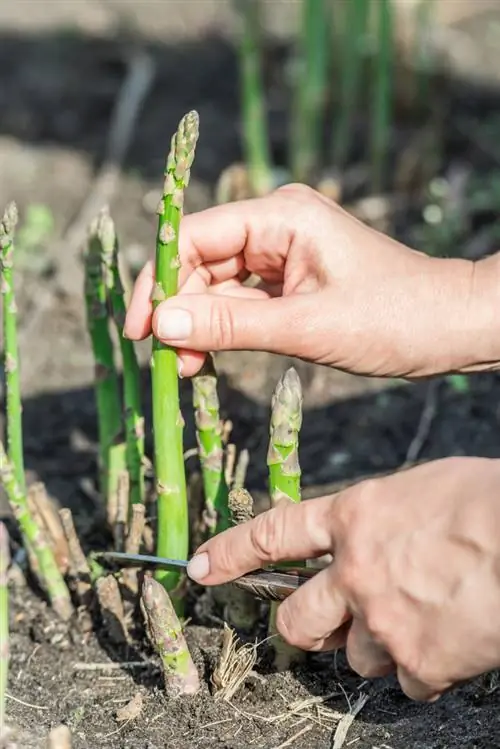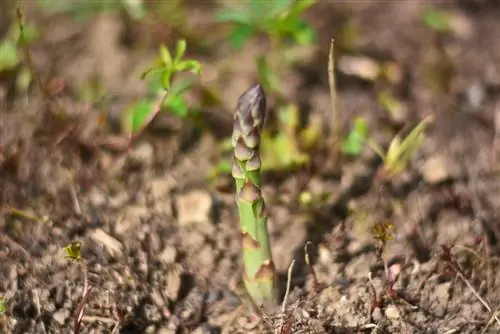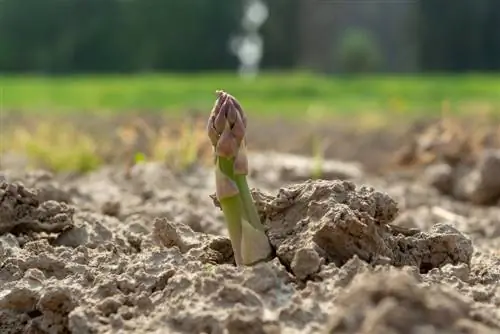- Author admin leonars@hobbygardeners.com.
- Public 2023-12-16 16:46.
- Last modified 2025-01-23 11:21.
Even if the soil conditions meet the requirements of asparagus almost optimally, you can increase the harvest yield with the right fertilizer. Would you like to know which products the vegetables need at what time and which substances you should stay away from? Find out the answers here.
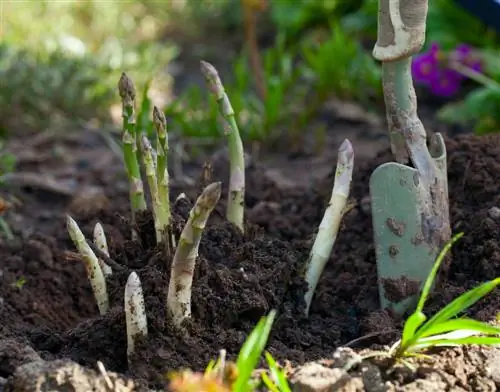
How should you properly fertilize green asparagus?
Fertilize green asparagus: For optimal growth phases, use mature compost, horn shavings or nettle manure. Manure and mulch are suitable for preparing the soil and adding asparagus fertilizer or compost during the dormant phase. Avoid fresh fertilizer, which attacks the roots.
Why is fertilizing necessary?
On the one hand, green asparagus is a heavy eater. This means that the vegetables are among the varieties with a particularly high fertilizer requirement. In addition, green asparagus sprouts every year, although changes in location are extremely rare. In order to maintain the nutrient content over the years, regular fertilizer application is important.
Tip
It is best to carry out a soil analysis in winter. Based on the results, you can optimally put together your fertilizer for the coming spring.
Which fertilizer at what time?
Until harvest, green asparagus goes through different growth phases in which it requires different nutrients. You should adapt these to the seasons.
Preparing the soil
Before you even sow your asparagus, it is necessary to prepare the soil. To do this, use green manure made from crushed plants that you mix into the substrate in late autumn.
Fertilizing during the growth phase
You can already use fertilizer from specialist retailers. But if you have prepared your bed well, this is usually not necessary. It is enough if you just rake ripe compost or horn shavings between the asparagus rows. However, the roots must not come into contact with the fertilizer.
Fertilizing during the dormant phase
Once you have harvested your asparagus, fertilize your bed with asparagus fertilizer (€34.00 on Amazon). If you don't find the smell annoying, you can use nettle manure. After removing the leaves in late fall, mix compost into the soil. A layer of mulch curbs the development of weeds.
Suitable and unsuitable fertilizers
Suitable fertilizers
- ripe stable manure
- ripe compost
- Stinging nettle manure
- Horn shavings
- Mulch
- crushed leaves and plants
Unsuitable fertilizers
Make sure you always use mature compost. Fresh fertilizer attacks the roots.

